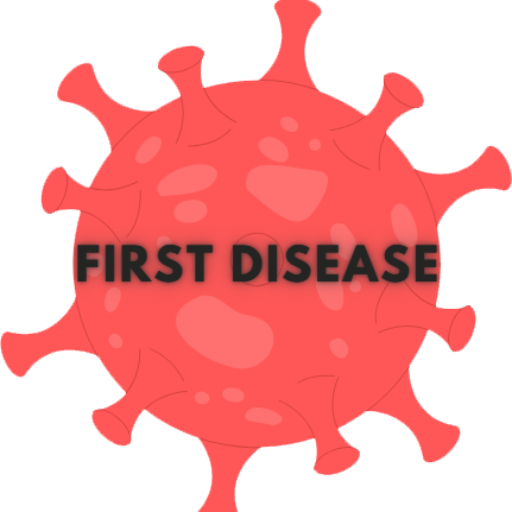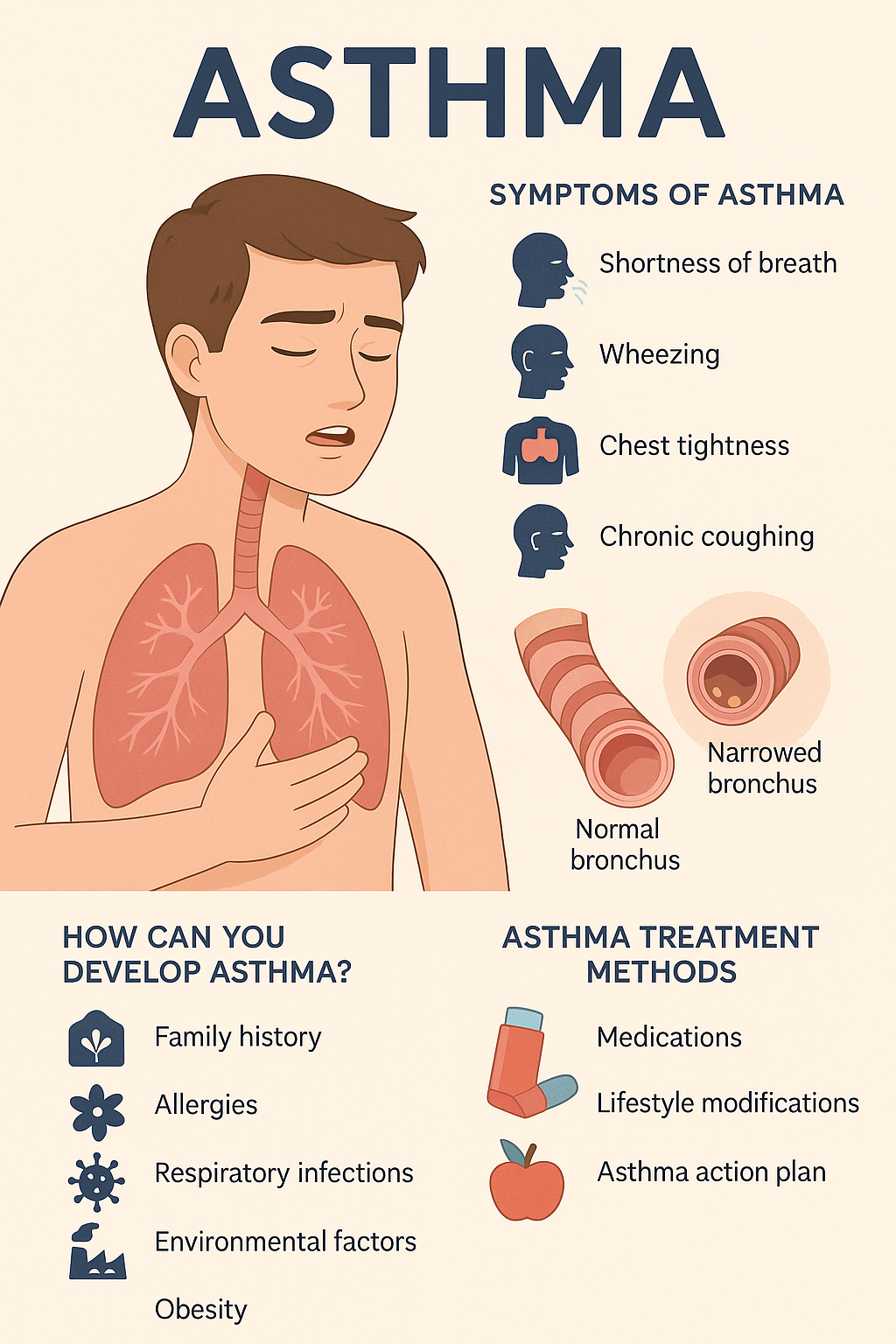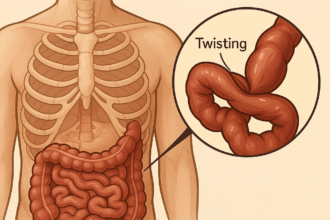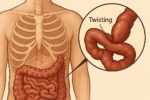Asthma: Symptoms, Causes, and Treatment Methods
What is Asthma?
Asthma disease is a chronic (long-term) respiratory condition characterized by inflammation and narrowing of the airways in the lungs, making it difficult to breathe. Asthma attacks can vary in severity and may worsen over time if not properly managed. It affects millions of people worldwide and can significantly impact daily life. However, with appropriate treatment and care, asthma can be controlled, allowing individuals to lead active, healthy lives.
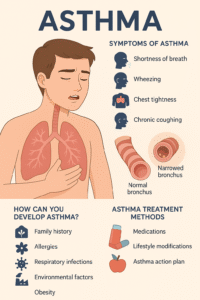
Symptoms of Asthma
Asthma disease symptoms can vary from person to person. Some people may experience symptoms only during physical activity (exercise-induced asthma) or when exposed to specific allergens, while others may have persistent symptoms throughout the day. The most common symptoms include:
-
Shortness of breath: Often worsens at night or in the early morning.
-
Wheezing: A whistling sound when breathing, especially during exhalation.
-
Chest tightness: A sensation of pressure or squeezing in the chest.
-
Chronic coughing: Especially at night, early in the morning, or after exercise.
-
Sleep disturbances: Due to breathing difficulties during the night.
In some cases, symptoms can intensify suddenly, leading to an asthma attack — a potentially life-threatening situation that requires immediate medical attention.
How Can You Develop Asthma?
While the exact cause of asthma is not fully understood, it is believed to result from a combination of genetic and environmental factors. Common risk factors include:
-
Family history: Having parents or siblings with asthma increases the risk.
-
Allergies: Conditions such as eczema, hay fever, or food allergies are linked to asthma development.
-
Respiratory infections: Frequent infections during childhood may affect lung function and increase asthma risk.
-
Environmental factors: Exposure to allergens (such as pollen, mold, pet dander, and dust mites), pollution, tobacco smoke, and occupational hazards (like chemical fumes) can trigger asthma.
-
Obesity: Being overweight can increase the likelihood of developing asthma.
-
Gender and age: In children, asthma is more common in boys; in adults, it is slightly more common in women.
It’s important to note that while these factors can increase the risk, not everyone exposed to them will develop asthma.

Asthma Disease Treatment Methods
While asthma cannot be completely cured, it can be effectively managed with the right treatment plan. Treatment goals focus on controlling symptoms, preventing attacks, and maintaining normal lung function. The main treatment strategies include:
1. Medications
-
Long-term control medications: These are taken daily to prevent symptoms by reducing airway inflammation. They include inhaled corticosteroids, leukotriene modifiers, and long-acting beta agonists (LABAs).
-
Quick-relief medications: Also known as rescue inhalers, these are used during an asthma attack to rapidly open the airways. Short-acting beta agonists (SABAs) like albuterol are commonly used.
-
Biologic therapies: For severe asthma, newer treatments that target specific parts of the immune system (such as monoclonal antibodies) are available.
2. Lifestyle Modifications
-
Avoid known asthma triggers such as smoke, dust, strong odors, and pet dander.
-
Maintain a healthy weight through proper diet and regular exercise.
-
Monitor air quality levels and stay indoors during high pollen or pollution days.
-
Practice breathing exercises to strengthen lung function.
3. Asthma Action Plan
A personalized asthma action plan, developed with a healthcare provider, helps patients recognize worsening symptoms and know how to adjust medications accordingly. It outlines steps to take daily and during an asthma attack.
4. Immunotherapy
In some cases, allergy shots (immunotherapy) may be recommended to gradually decrease the body’s sensitivity to allergens that trigger asthma.
Conclusion
Asthma is a manageable but serious respiratory condition that requires continuous attention and care. Understanding the symptoms, recognizing the risk factors, and following a tailored treatment plan can empower individuals to live active, healthy lives despite having asthma. With advancements in medicine and increased awareness, many people with asthma today achieve excellent control over their condition.
Don’t forget to check our page for similar diseases and treatments.
